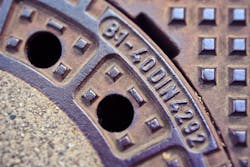Combined Sewage Overflow Bill
In Massachusetts, about 200 active outfall pipes located in 18 cities discharge billions of gallons of sewage annually. According to WBUR, scientists predict that in the future, the Northeast will receive more precipitation in shorter, more intense bursts. It is a recipe for sewage overflows, according to WBUR.
Water advocates are pushing to let the public know when there is sewage in the water. Some advocates are behind a bill that will do that, according to WBUR.
Sewer operators in Massachusetts are required to report combined sewer overflow (CSO) events to state and federal agencies. However, informing the public is not.
“I mean, it’s crazy. Where we’re standing right now, there are crew boathouses both upstream and downstream from us, and they’re not getting any notices that there’s sewage going into the water,” said Gabby Queenan, policy director of the Massachusetts Rivers Alliance.
According to WBUR, CSOs receive permits under the Clean Water Act, and as part of the permit, most operators must notify the Environmental Protection Agency and state departments of Environmental Protection and Public Health about discharges. Queenan says some permits require notification within 48 hours, but others allow for annual or quarterly reporting.
Queenan says the 2018 environmental bond bill earmarked $800 million in grants that cities could apply for to help foot the bill. According to WBUR, she also thinks people should demand the state and federal government kick in money to help.
In most sewer systems in the country, domestic and industrial wastewater flows through one pipe, while stormwater flows through another. According to WBUR, the wastewater ends up at a treatment plant, and the stormwater in a river, stream, harbor or other body of water.
However, in a combined system, wastewater and stormwater travel in the same pipe. According to WBUR, most days this works fine. But during a rainstorm, the volume of water exceeds pipe capacity and overwhelms the sewer system. The CSO system is designed to discharge into nearby water.
According to WBUR, not all CSO outfalls are equal. Overflows generally happen when a lot of rain falls in a short time, though some cities get them with only a bit of rain or snow melt. Discharges can last an hour or the better part of a day, and contain varying ratios of stormwater to sewage.
In Massachusetts, the Charles River has 10 outfall pipes that have released more than 29 million of gal of sewage in 2017, and the Mystic River/Chelsea Creek has eight outfalls that discharged more than 78 million gal, according to data from the Massachusetts Water Resources Authority. CSOs in the Mystic River dumped 770 million gal of sewage in the river in 2017.
